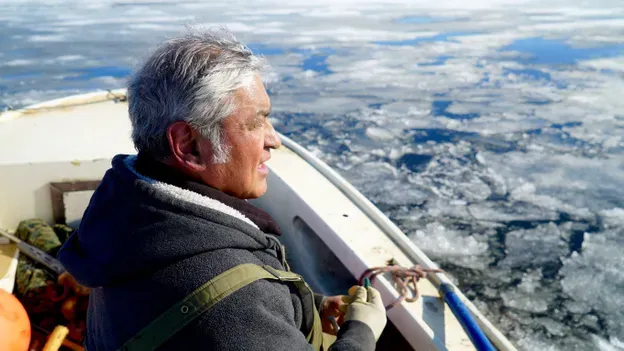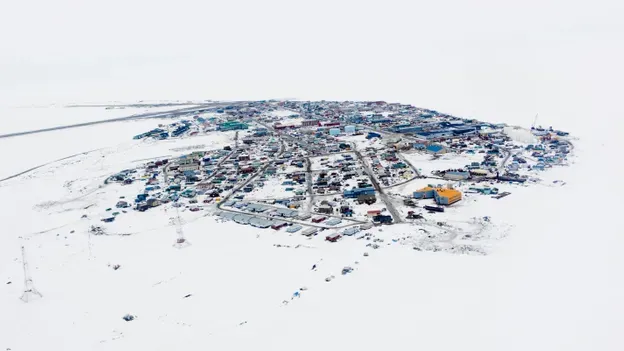
On an isolated shoreline in northwest Alaska, a log cabin has stood watch over strengthening storms, and rising seas. The cabin was built 20 years ago by Ross Schaeffer, a member of the Iñupiat community in the town of Kotzebue, or Qikiqtaġruk as it is known in the local native Alaskan Iñupiaq language.
Kotzebue is the only town for miles around with an airstrip. It's home to just 3,000 people but, in this part of the world, that's considered a hive of activity. To get away from it all, Ross likes to escape to his cabin in the spring when nearby Sadie Creek swells and cuts off the rest of civilisation.
"It's a really beautiful place to be," says Ross. But last year, Ross was forced to raise the cabin nearly two feet (60cm) higher, to protect it from the ever-encroaching ocean. Located on a thin spit of land, largely made up of loose gravel, the retreat is vulnerable to powerful waves.
"In a few years, that ocean's probably going to take it away," says Ross. Other properties in the area are at risk of the same fate, he adds. The destruction is already happening. Ross has seen the wreckage of houses, once secure, lying scattered on the shore – violently dismantled by the sea.
Both Ross and his brother Bobby, who also lives in Kotzebue, can see that their world is changing. Climate change is melting the ice they rely on to travel and hunt. It is reshaping the coastline and harming the local wildlife.
For hundreds of years, Iñupiat people have adapted to live in harsh conditions. But many today are like Ross and Bobby. They worry about the startling pace of present-day climate change, and what may be at risk in their communities because of it. They worry about what else they stand to lose.
The pair were born just after World War Two – Ross in 1947, Bobby in 1949. Two children out of a total of 12, two of whom died at a young age. For the best part of a century, they've tracked changes in the world around them with an attention to detail that they learned, in part, from their father.
The threat of a warming, rising sea has troubled them both. "We've witnessed massive erosion in the last 50 years," says Bobby. The pair contributed to scientific research published this year about how climate change is affecting hunting activities in the area.
The Arctic, Earth's northern polar region, is warming about twice as fast as anywhere else. Indigenous groups who live there, including Iñupiat and, in Canada and Greenland, Inuit people, are experiencing profound changes in their environment, which in turn can shake their whole culture and way of life.

The city of Kotzebue lies in Alaska's remote Northwest Arctic region, and the Iñupiaq word for it means "shaped like a long island" (Credit: Alamy).
Source:https://www.bbc.com/future/article/20211210-the-iupiat-brothers-watching-their-land-melt